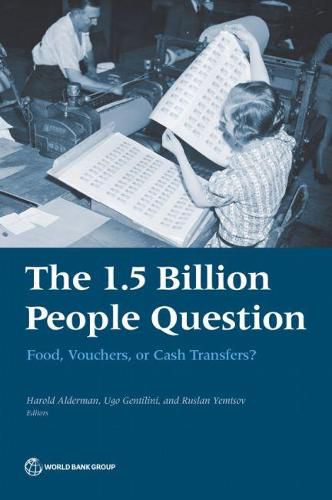Readings Newsletter
Become a Readings Member to make your shopping experience even easier.
Sign in or sign up for free!
You’re not far away from qualifying for FREE standard shipping within Australia
You’ve qualified for FREE standard shipping within Australia
The cart is loading…






Most of the people in low and middle-income countries covered by social protection receive assistance in the form of in-kind food. The origin of such support is rooted in countries’ historical pursuit of three interconnected objectives, namely attaining self-sufficiency in food, managing domestic food prices, and providing income support to the poor. This volume sheds light on the complex, bumpy and non-linear process of how some flagship food-based social protection programs have evolved over time, and how they currently work. In particular, it lays out the broad trends in reforms, including a growing move from in-kind modalities to cash transfers, from universality to targeting, and from agriculture to social protection. Case studies from Egypt, India, Indonesia, Mexico, Sri Lanka, and United States document the specific experiences of managing the process of reform and implementation, including enhancing our understanding of the opportunities and challenges with different social protection transfer modalities.
$9.00 standard shipping within Australia
FREE standard shipping within Australia for orders over $100.00
Express & International shipping calculated at checkout
Most of the people in low and middle-income countries covered by social protection receive assistance in the form of in-kind food. The origin of such support is rooted in countries’ historical pursuit of three interconnected objectives, namely attaining self-sufficiency in food, managing domestic food prices, and providing income support to the poor. This volume sheds light on the complex, bumpy and non-linear process of how some flagship food-based social protection programs have evolved over time, and how they currently work. In particular, it lays out the broad trends in reforms, including a growing move from in-kind modalities to cash transfers, from universality to targeting, and from agriculture to social protection. Case studies from Egypt, India, Indonesia, Mexico, Sri Lanka, and United States document the specific experiences of managing the process of reform and implementation, including enhancing our understanding of the opportunities and challenges with different social protection transfer modalities.